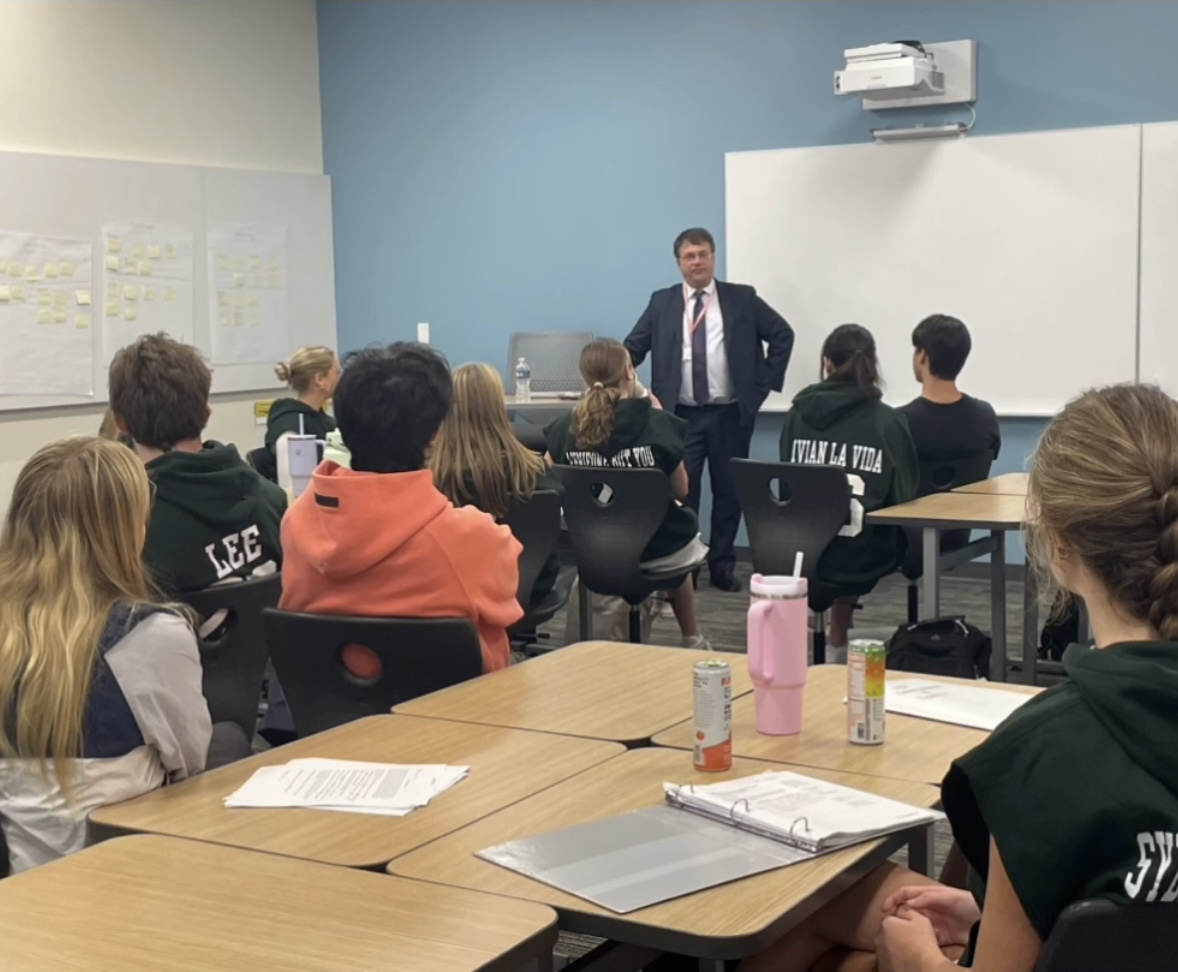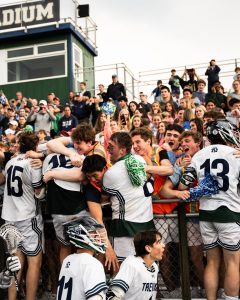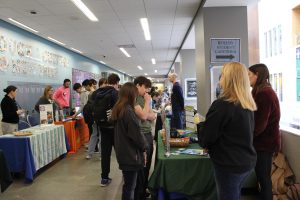Freshmen need their own campus
December 8, 2017
All students can attest to the hallmark experience of attending New Trier West as freshmen, then transitioning to New Trier East for the remaining three years of high school. We can also agree that the separation of freshmen and upperclassmen is unique to New Trier. Freshmen think of the Winnetka campus as an almost fantastical land free of required study halls. Upperclassmen reminisce about the AAC that they took for granted, and the outdoor spaces that made school feel less like a prison.
We all know the anxiety and excitement and nervousness and hopefulness that characterizes freshman year. Especially for those who attended middle schools that totaled less than one hundred students who all grew up together, the transition to a high school as vast as New Trier can be downright terrifying.
But the Northfield campus and events held exclusively for freshmen seem to shelter the newly arrived students. The Freshman Mixer, for example, saves them from scrambling for dates, renting a party bus, and organizing an after party in their first quarter of high school. The field of grass where freshmen congregate during football games serves as a space for them to spectate away from rowdy seniors.
That’s not to say that the separation between freshmen and upperclassmen is a perfect system. Students of all years complain that clubs at Winnetka are not accessible to freshmen. Information about clubs is rarely conveyed to students at Northfield, and when it is, students must take a shuttle then find their way around a totally unfamiliar building. Interactions between freshman and JV and varsity athletes are, at best, limited. Different teams practice at different locations, and they rarely interact with one another at games, despite the fact that they play the same sport. This kind of physical separation arguably leads to a psychological separation: freshmen feel as though they attend a totally different school than upperclassmen.
Opportunities to form sustained relationships with older students, establish positions in extracurriculars, and take part in school-wide events are almost non-existent for freshmen.
But, these are all fixable problems in a system that we believe works effectively. The turbulent emotions and the foreign environment that freshman students experience daily likely would be exacerbated by the presence of thousands of sophomores, juniors, and seniors.
In fact, at other high schools where all students attend one campus, upperclassmen are notorious for teasing and even bullying “fresh meat,” as they are called.
Incidents of hazing of freshmen athletes by varsity athletes all over the country continually make the news.
At New Trier, a freshman-only campus enables students to select courses, make friends, explore extracurriculars, and find their way without the pressure that the presence of older students can add. The encounters that they have with upperclassmen are limited to the work of Senior Helpers and SILCs, all of whom serve as positive role models.
We as an editorial staff made up of students of different ages, genders, and experiences believe that the separation of freshmen and upperclassmen creates a smoother transition for students from eighth grade into high school. This system is certainly uncommon among high schools, but has proven to work well here.











































